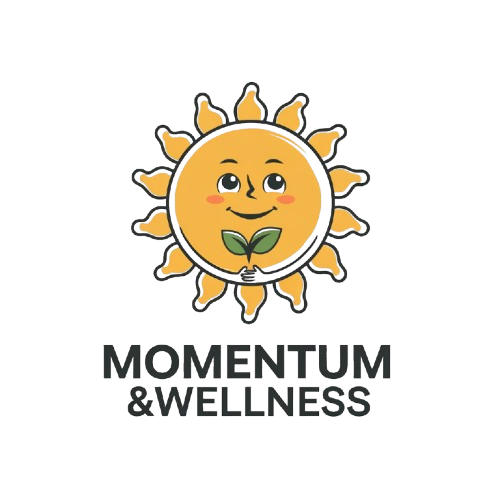
Personal development is a lifelong journey of growth and self-improvement. It’s about honing your skills, expanding your mindset, and cultivating habits that lead to a happier and more successful life. While the process may seem daunting at first, it begins with small, intentional steps that create a ripple effect of positive change. By focusing on key areas like self-awareness, goal-setting, and resilience, you can unlock your true potential and live a more meaningful life. Here are some essential personal development tips to guide you on this transformative journey.
1. Set Clear and Achievable Goals
Goal-setting is a cornerstone of personal development. Clear and achievable goals provide direction and motivation, ensuring that your efforts are focused and purposeful. Start by identifying what you truly want in different areas of your life, such as career, relationships, health, or personal growth. Break these goals into smaller, manageable steps that are easier to accomplish. For instance, if your goal is to improve your health, begin with simple changes like walking for 30 minutes a day or incorporating more vegetables into your diet. Regularly review your progress and adjust your strategies as needed, staying flexible and open to change.
2. Cultivate Self-Awareness
Understanding yourself is key to personal growth. Self-awareness involves recognizing your strengths, weaknesses, emotions, and thought patterns. Spend time reflecting on your actions and reactions in various situations to gain insights into your behavior. Practices like journaling, mindfulness, or seeking feedback from others can help deepen your self-awareness. When you’re in tune with your inner self, it becomes easier to make decisions that align with your values and aspirations. Self-awareness not only improves your relationships with others but also empowers you to navigate challenges with clarity and confidence.
3. Embrace Continuous Learning
Personal development thrives on continuous learning. The world is constantly evolving, and staying curious and open-minded helps you adapt and grow. Invest in your knowledge by reading books, taking online courses, or attending workshops in areas that interest you. Learning doesn’t have to be limited to formal education; everyday experiences and interactions can also offer valuable lessons. For instance, listening to podcasts during your commute or engaging in conversations with people from diverse backgrounds can broaden your perspective. Make it a habit to challenge yourself and acquire new skills, as this not only boosts your confidence but also enhances your opportunities for success.
4. Practice Gratitude
Gratitude is a powerful tool for personal development. It shifts your focus from what you lack to what you already have, fostering a positive outlook on life. Take a few moments each day to reflect on the things you’re thankful for, whether it’s a kind gesture from a friend, a beautiful sunset, or your own achievements. Keeping a gratitude journal can help solidify this practice, allowing you to revisit and appreciate your blessings over time. Gratitude not only improves your mental and emotional well-being but also strengthens your relationships by encouraging empathy and kindness.
5. Develop Resilience
Life is full of ups and downs, and resilience is what helps you navigate through challenges and setbacks. Building resilience means cultivating a mindset that sees failure as a stepping stone to growth rather than a roadblock. Practice self-compassion during tough times, acknowledging your emotions without judgment. Techniques like mindfulness, deep breathing, or seeking support from friends and family can also strengthen your ability to bounce back. Remember that resilience isn’t about avoiding difficulties but about facing them with courage and adaptability, knowing that each experience contributes to your growth.
6. Enhance Your Communication Skills
Effective communication is crucial for personal and professional success. It’s not just about speaking clearly but also about listening actively and empathizing with others. Pay attention to nonverbal cues like body language and tone of voice, as they often convey more than words. Practice articulating your thoughts and feelings respectfully, even in challenging conversations. Developing strong communication skills can help you build deeper connections, resolve conflicts, and express yourself confidently in any situation. Over time, these skills will enhance your relationships and open up new opportunities.
7. Prioritize Your Well-Being
Your physical and mental health are the foundation of personal development. Prioritize self-care by maintaining a balanced lifestyle that includes regular exercise, a nutritious diet, and adequate sleep. Manage stress through relaxation techniques like meditation, yoga, or hobbies that bring you joy. Pay attention to your mental health by seeking professional help when needed or simply taking breaks to recharge. When you take care of yourself, you’re better equipped to pursue your goals and handle life’s demands with energy and enthusiasm.
8. Surround Yourself with Positive Influences
The people you surround yourself with play a significant role in shaping your mindset and habits. Cultivate relationships with individuals who inspire and support your growth. These could be mentors, friends, or family members who encourage you to strive for your best. Limit your exposure to negativity, whether it comes from toxic relationships or environments. Positive influences uplift you, helping you stay motivated and focused on your journey. Remember, you don’t have to face challenges alone – a strong support system can make all the difference.
9. Take Responsibility for Your Actions
Personal development requires taking ownership of your life. This means acknowledging your choices, actions, and their outcomes, whether positive or negative. Avoid blaming others or external circumstances for your challenges, and instead focus on what you can control. By adopting a proactive mindset, you empower yourself to find solutions and grow from every experience. Taking responsibility also fosters a sense of accountability, which is crucial for building trust and credibility in your personal and professional relationships.
10. Celebrate Your Progress
Recognizing and celebrating your achievements, no matter how small, is vital for maintaining motivation. Personal development is a continuous process, and it’s easy to overlook how far you’ve come while focusing on future goals. Take time to reflect on your milestones, whether it’s completing a course, overcoming a fear, or forming a positive habit. Celebrating your progress reinforces your efforts and reminds you that growth is a journey, not a destination. Use these moments of celebration to recharge and reaffirm your commitment to self-improvement.
Conclusion
Personal development is a transformative journey that empowers you to become the best version of yourself. By setting clear goals, embracing continuous learning, and prioritizing your well-being, you can unlock your potential and create a fulfilling life. Remember that growth is not a straight path but a series of small, intentional steps. Be patient with yourself and celebrate your progress along the way. With determination and a positive mindset, you can overcome obstacles and achieve the life you’ve always envisioned. Start today, and watch as your efforts ripple into every aspect of your life, bringing success, happiness, and purpose.



